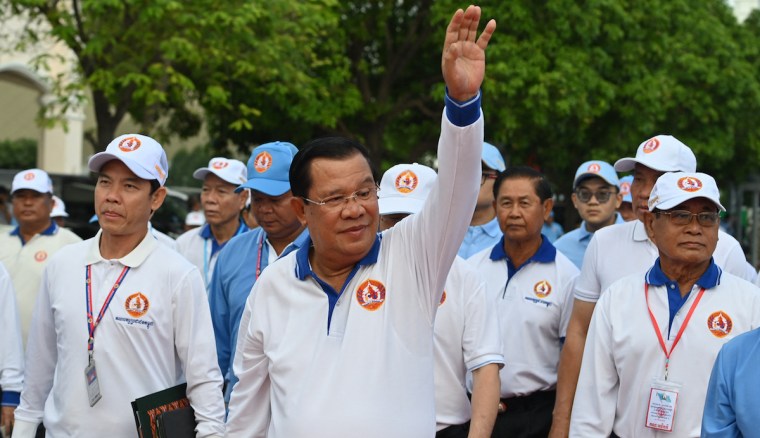Bangkok, July 20, 2023—Cambodia’s government should lift its censorship orders against three news organizations and allow the media to report freely on the July 23 general elections without fear of reprisal, the Committee to Protect Journalists said Thursday.
In a July 12 letter, the Telecommunications Regulator of Cambodia ordered local internet service providers (ISPs) to block the websites and social media accounts of The Cambodia Daily, U.S. Congress-funded Radio Free Asia (RFA), and Kamnotra, a new independent public database, according to reports by RFA, Cambodian Journalists Alliance Association (CamboJA), a local advocacy and news organization, and Voice of America (VOA), which is also funded by Congress. The order targeted a total of nine domains among the three news organizations, VOA reported.
The letter said the three outlets had broadcast information to “make confusion, affect the government’s honor and prestige, and failed to fulfill the operating conditions of the Information Ministry,” according to the CamboJA’s translation of the order which was issued in Khmer.
The telecommunications regulator ordered local ISPs to block access to the listed websites and social media accounts “immediately,” according to VOA.
“Cambodia’s censorship order against The Cambodia Daily, Radio Free Asia, and Kamnotra is a crude attempt to curb free reporting on the country’s upcoming general election,” said Shawn Crispin, CPJ’s senior Southeast Asia representative. “As long as authorities harass and suppress the press, Cambodia will only be a democracy in name, not in substance.”
The Southeast Asia Globe reported on July 18, that the banned sites “are still mostly accessible through a virtual private network,” or VPN, which can be used to evade internet censorship.
In February, Prime Minister Hun Sen ordered the closure of Voice of Democracy over news coverage he viewed as slandering his son Hun Manet, who is widely expected to replace his father as prime minister after Sunday’s election.
Voice of Democracy was broadly recognized as one of the few remaining independent news outlets in Cambodia, with a track record of reporting on corruption and human rights issues in the country.
Several of its reporters fled the country soon after the closure order due to fears for their personal security if they remained in Cambodia, Voice of Democracy representatives told CPJ.
Kamnotra, which maintains two databases of government records and other non-government data aimed at informing the public, was launched in June by the Cambodian Center for Independent Media, the same nongovernmental organization that ran Voice of Democracy until its closure, according to CamboJA.
Cambodia’s Ministry of Information and the Telecommunications Regulator of Cambodia did not immediately respond to CPJ’s emailed requests for comment.
